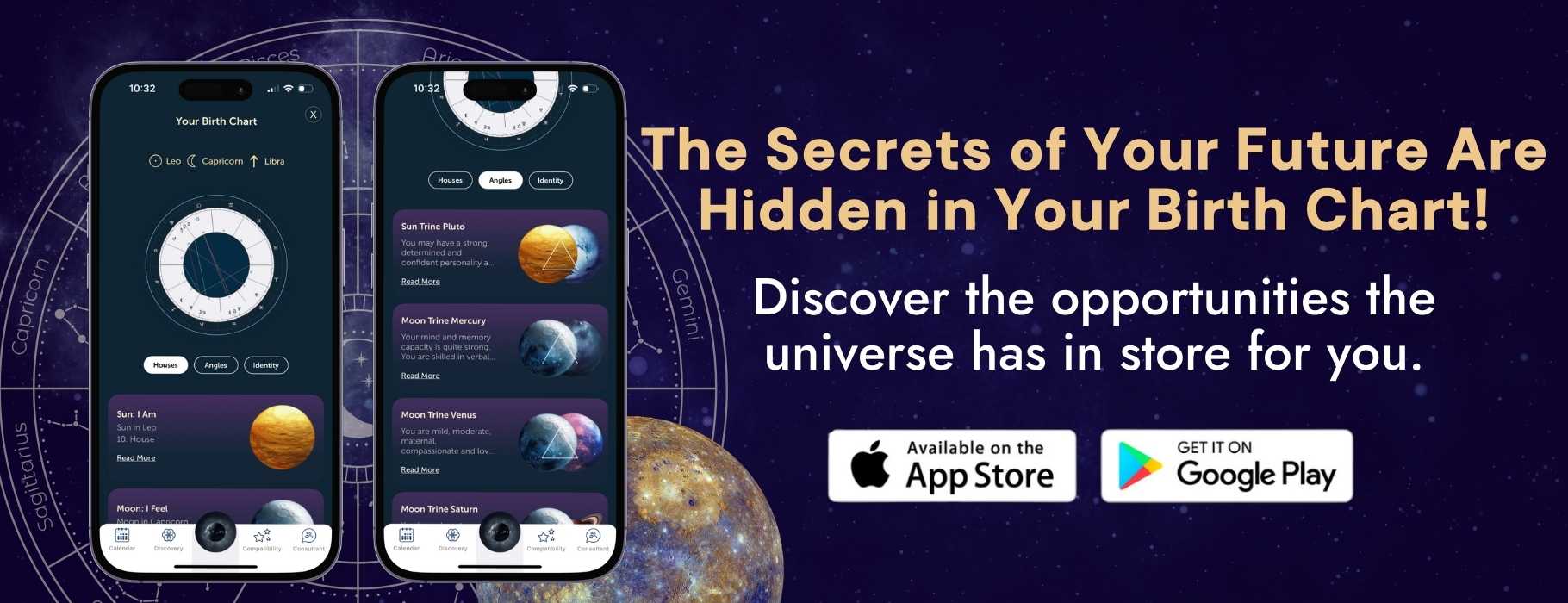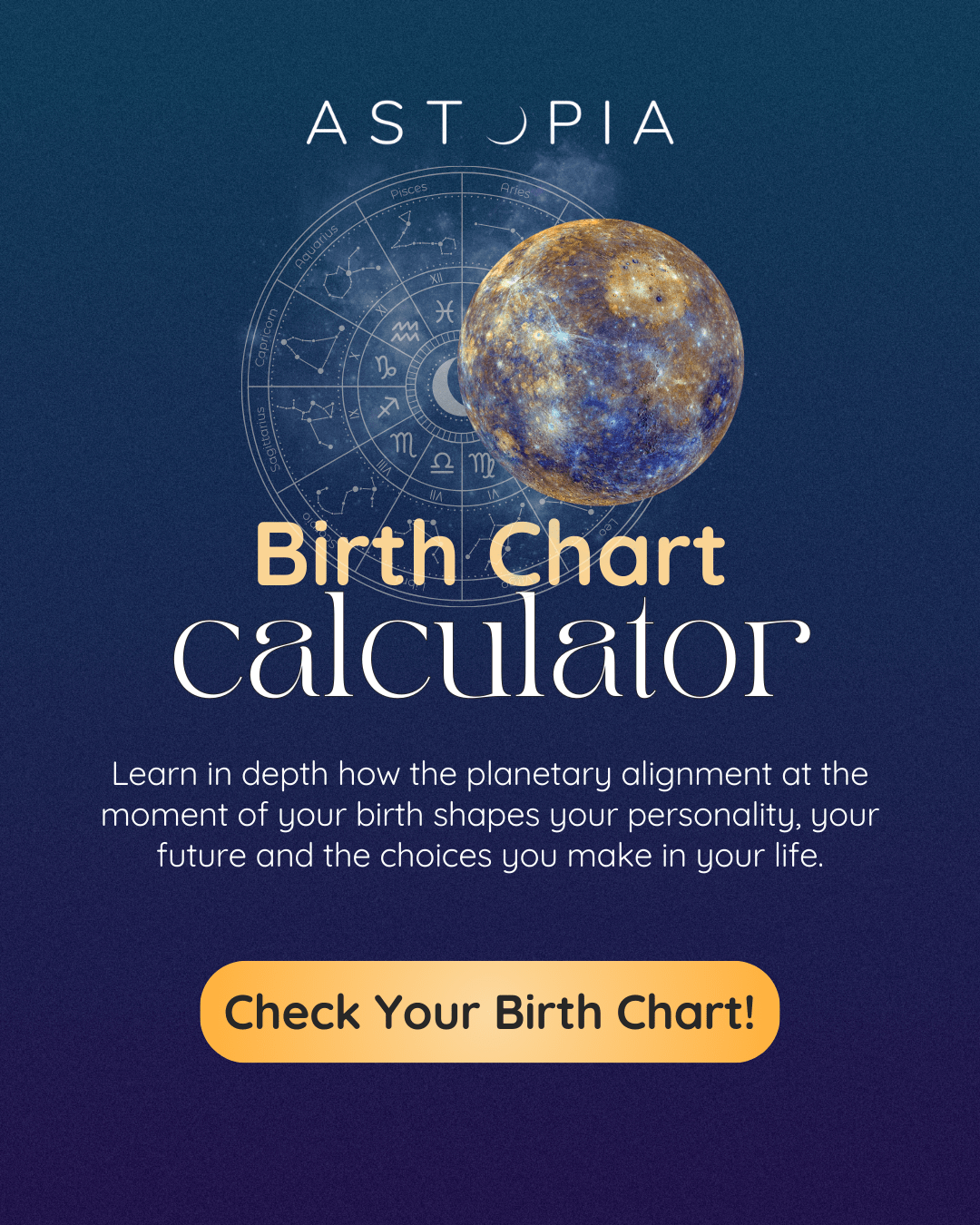
1/23/2024
Author: Astopia TeamHow to Become an Astrologer: A Step-by-Step Guide
Becoming an astrologer means learning to interpret the language of the cosmos and using that knowledge to shed light on others’ lives. If you're drawn to this fascinating path, there are many things to discover and a rich journey of learning ahead. This celestial exploration isn't just about understanding zodiac signs—it’s about grasping the influence of planets, the roles of the Sun and Moon in human life, and how your rising sign helps shape your identity.
Along the way, you'll also dive into tools like birth charts and synastry charts, which play an essential role in guiding others and yourself through the astrological landscape.
Gaining a solid foundation in astrology is the first step in your journey. But that’s only the beginning. Astrology is a lifelong learning process—an ever-evolving blend of discovery and self-reflection. You’ll start by learning the basic principles, then gradually deepen your understanding as you explore more advanced concepts. Through courses, astrology blogs, books, and online resources, you’ll expand your knowledge while also uncovering the spiritual and personal development aspects that astrology offers.
As you move forward on the path to becoming an astrologer, remember that personal growth is just as important as technical knowledge. Astrology is not only a tool for guiding others—it’s also a powerful system for discovering your own inner world. The journey to becoming an astrologer invites you into a deeper awareness of yourself and your connection to the universe.
Remember, the foundations of astrology are built not only on study and technique but also on intuition and awareness. As you take the first step in this exciting path, having the right guidance and understanding will strengthen your connection to astrology and lead you into a deeper sense of discovery. Becoming an astrologer is a journey of knowledge and self-awareness—and this is only the beginning.
Essential Qualities for Aspiring Astrologers
Becoming an astrologer is more than just acquiring technical knowledge—it’s a journey that requires natural intuition, self-awareness, and a commitment to personal growth. To interpret the language of the cosmos and use this insight to guide others, an astrologer must possess certain core qualities. These traits are essential not only for delving into the depths of astrology but also for building a meaningful and professional career in the field.
Here are the key qualities every aspiring astrologer should develop:
- Curiosity and a Passion for Learning: Astrology is an art of uncovering the mysteries of the universe. A deep curiosity about planetary movements, the influence of zodiac signs, and the dynamics of inner and outer planets forms the foundation of astrological study. To become an astrologer is to commit to lifelong learning—seeking out new knowledge and insights rather than settling for what you already know. This passion will keep you moving forward on your path.
- Empathy and Understanding Human Psychology: An astrologer must do more than interpret celestial patterns—they must also understand the emotional world of people. Empathy is one of the most vital qualities an astrologer can have. Tools like natal charts and synastry charts reveal the psychological makeup of individuals, and a strong emotional intelligence helps provide meaningful guidance. A deep understanding of human nature strengthens your practice and makes you a more compassionate guide.
- Patience and Attention to Detail: Astrology is a complex system that demands patience and precision. Understanding planetary transits, rising signs, houses, and aspects requires time and care. Each chart is a detailed map, and it’s the astrologer’s job to interpret every component with accuracy. Patience ensures thorough readings, and attention to detail allows for deeper, more insightful interpretations.
- Analytical Thinking and Pattern Recognition: Astrology is not only about observing—it’s about connecting the dots. Each planet, sign, and house brings specific qualities, and understanding how they interact requires a sharp analytical mind. A skilled astrologer sees the patterns beneath the surface and uses them to make nuanced interpretations. Analytical thinking is essential for making sense of complex data and for offering grounded, insightful readings.
- Strong Communication and Expression Skills: Having deep astrological knowledge is one thing—sharing it clearly is another. An astrologer must be able to communicate insights in a way that’s accessible and meaningful to clients. Whether you’re explaining a birth chart or offering guidance during a session, your words matter. The ability to simplify complex ideas and express them with clarity is essential for effective guidance.
- Commitment to Ongoing Learning: Astrology is an evolving field. New transits, discoveries, and interpretations continually reshape the landscape. To grow as an astrologer, you must stay informed and open to new perspectives. Attending workshops, taking online courses, and reading reputable astrology sources will expand your expertise and refine your practice. Lifelong learning is the key to staying relevant and deeply connected to your craft.
- Ethical Integrity: Astrology involves working with deeply personal and often vulnerable information. Therefore, maintaining strong ethical standards is non-negotiable. Respect for privacy, sensitivity to emotional concerns, and a sincere commitment to helping others are the pillars of ethical astrology. A trustworthy astrologer not only shares insights but also creates a safe, respectful space for transformation.
- Creative Thinking: Beyond technical skills, astrology requires a creative approach. Interpreting a chart often means going beyond traditional meanings and weaving together symbols to uncover deeper truths. Creative thinking allows you to offer unique perspectives, develop new interpretations, and bring intuition into your practice.
- Active Listening: Listening is just as important as interpreting a chart. People seek astrology when they need guidance, clarity, or emotional support. An astrologer must be present, attentive, and open-hearted. By listening deeply, you gain the insight needed to offer relevant and compassionate guidance.
Astrology is not simply the study of planetary movements—it’s the art of understanding people and offering meaningful support on their personal journey. Qualities like curiosity, empathy, patience, creativity, and ethical awareness are the foundation of becoming a successful astrologer. By cultivating these traits, you’ll be well on your way to building a fulfilling and professional astrological practice.
Remember, astrology is more than a profession—it’s a holistic journey. Every step you take toward learning and self-development not only brings you closer to becoming a skilled astrologer, but also a more conscious, compassionate human being.
Understanding the Foundations of Astrology: Discover Your Connection with the Universe
Astrology is an ancient and mysterious system that dates back thousands of years. It explores how the movements of stars, planets, and other celestial bodies influence human life. Far more than just a universal system, astrology also serves as a powerful tool for personal discovery, helping you gain self-awareness and a deeper understanding of your inner journey and your connection to the cosmos.
If you're just beginning to explore astrology, understanding its core components and concepts will open the door to a transformative journey. Here's what you need to know to grasp the fundamentals of astrology:
1. The Zodiac Signs and the Zodiac Belt
At the heart of astrology is the zodiac belt—a division of the sky into 12 equal sections, each representing a zodiac sign with its own unique energy and traits. These signs are determined by the position of the Sun at the time of your birth and shape your personality, life path, and inner potentials.
The zodiac reflects cosmic energies, and each sign channels these energies in a different way. By understanding the characteristics of your zodiac sign, you can gain insight into your core nature and the themes that shape your life.
- Aries: Symbolizes courage, leadership, and entrepreneurial spirit. Aries is bold, action-oriented, and thrives on creating change.
- Taurus: Associated with stability, patience, and the desire for material and emotional security.
- Gemini: Represents communication, curiosity, and adaptability. A quick thinker who seeks constant stimulation and learning.
- Cancer: Reflects emotional depth, nurturing, and the need for home and family. Builds strong emotional connections.
- Leo: Embodies creativity, self-confidence, and a desire to lead. Radiates energy and seeks recognition.
- Virgo: Linked to attention to detail, health, and service. Highly analytical and practical in problem-solving.
- Libra: Focused on relationships, balance, and aesthetics. Driven by fairness, harmony, and social grace.
- Scorpio: Associated with transformation, mystery, and passion. Deeply emotional and inwardly powerful.
- Sagittarius: Represents adventure, exploration, and philosophical thought. Seeks truth and a broader perspective on life.
- Capricorn: Grounded in responsibility, discipline, and ambition. Sets long-term goals and pursues them with determination.
- Aquarius: Stands for innovation, freedom, and social progress. Thinks independently and desires change on a collective level.
- Pisces: Symbolizes empathy, intuition, and spirituality. Emotionally rich and attuned to deeper, unseen realms.
2. The Planets and the Energies They Represent
In astrology, planets are powerful sources of energy that shape essential aspects of your life. Each planet carries its own unique symbolism and energetic influence. Including the Sun and Moon, these celestial bodies represent specific parts of your personality and life path. The positions of the planets within the zodiac wheel guide your character traits, experiences, and how these manifest in your journey. Understanding how the planets align in your birth chart will offer guidance for your inner evolution.
Here’s a breakdown of the planets and the core themes they represent:
- Sun: The planet of identity, self-expression, and life force. It represents the core of who you are and how you present yourself to the world. Your Sun sign shows your life purpose and helps guide you toward discovering your authentic self.
- Moon: Symbolizes your emotional world, sense of security, and subconscious patterns. The Moon governs how you process emotions, seek comfort, and react to life based on past experiences. It also shapes your intuition and emotional intelligence.
- Mercury: The planet of communication, thought, and learning. Mercury governs your mental processes, how you communicate, and your approach to acquiring and sharing knowledge. It reveals how you think, speak, and process information.
- Venus: Governs love, relationships, beauty, and harmony. Venus shows how you express affection, form connections, and appreciate beauty. It also reflects your romantic style, values in relationships, and artistic or aesthetic preferences.
- Mars: The planet of energy, courage, action, and drive. Mars represents your ability to take initiative, pursue goals, and assert yourself. It also symbolizes how you handle conflict and where your inner strength and motivation come from.
- Jupiter: The planet of growth, expansion, luck, and wisdom. Jupiter is associated with optimism and opportunity. It guides your spiritual growth, philosophical outlook, and areas where abundance and learning come easily.
- Saturn: Represents discipline, responsibility, life lessons, and structure. Saturn teaches through challenges and obstacles, showing where you need to build patience, maturity, and long-term stability. It helps lay strong foundations for future success.
- Uranus: The planet of innovation, freedom, revolution, and sudden change. Uranus disrupts the status quo, urging you to think differently and break free from outdated patterns. It inspires individuality and collective progress.
- Neptune: Governs imagination, intuition, spirituality, and inspiration. Neptune invites you into the realm of dreams, mysticism, and artistic expression. It enhances your connection to the unseen and encourages spiritual exploration.
- Pluto: The planet of transformation, mystery, power, and rebirth. Pluto guides you through deep changes and personal evolution, often triggered by crisis or revelation. It symbolizes hidden strength, emotional depth, and the process of regeneration.
3. The Houses and the Different Areas of Life
The astrological chart is divided into twelve houses, each representing a different area of life and a specific type of experience. Every house is associated with certain themes, and the presence of particular planets or signs in a house influences how those areas are experienced.
Here’s what each house represents:
- 1st House: Self-image, personality, and first impressions. It reflects how you present yourself to the world and the energy others feel when they meet you.
- 2nd House: Finances, possessions, and sense of security. It shows how you earn, manage, and value material resources, as well as your relationship with stability and self-worth.
- 3rd House: Communication, siblings, and short journeys. This house governs your thinking patterns, learning style, daily interactions, and how you share information.
- 4th House: Home, family, and roots. It relates to your family background, emotional foundation, and the environment you consider your safe space.
- 5th House: Creativity, romance, and personal expression. It includes your artistic pursuits, love affairs, hobbies, and connection with children.
- 6th House: Health, routines, and service. This house is about daily habits, wellness, work ethic, and how you contribute to others or maintain order in your life.
- 7th House: Partnerships, marriage, and one-on-one relationships. It reveals how you connect with others in committed partnerships and what you seek in close bonds.
- 8th House: Transformation, intimacy, and shared resources. It governs emotional depth, personal rebirth, joint finances, and the mysteries of life and death.
- 9th House: Higher education, travel, and philosophy. This house inspires the search for meaning, spiritual growth, cultural exploration, and belief systems.
- 10th House: Career, status, and public life. It shows your ambitions, achievements, and how you are seen in the eyes of society.
- 11th House: Friendships, social networks, and aspirations. This house is about collective goals, community involvement, and your vision for the future.
- 12th House: Subconscious, solitude, and spiritual growth. It represents the unseen realms, inner healing, and the hidden aspects of your psyche.
4. Aspects and Planetary Interactions
In astrology, aspects refer to the angles that planets form with each other (such as conjunctions, squares, trines, oppositions). These aspects reflect how planetary energies interact and how those interactions manifest in your life.
Each aspect carries its own meaning and influence. In your natal chart, aspects provide important insights:
- Square aspects often indicate tension, challenges, and obstacles. They highlight the areas in life where growth comes through overcoming difficulty.
- Trine aspects represent harmony, support, and flow. These aspects show where you experience ease and natural talent.
- Opposition aspects symbolize polarity and the need for balance between contrasting forces. They help you become aware of dualities and guide you toward integration.
5. Natal Chart: A Map for Your Inner Journey
Your natal chart is a snapshot of the sky at the exact moment you were born. It reflects the positions of the planets, signs, and houses at that time, offering profound insights into your personality traits, potentials, strengths, and areas for growth.
By exploring the planetary placements and their aspects within your chart, you embark on a path of self-discovery. Your natal chart acts as a personal guide, illuminating your life path and helping you gain deeper self-awareness.
Learning astrology isn't just about understanding your own chart—it’s about deciphering the language of the cosmos and integrating that wisdom into everyday life. This journey blends personal insight with universal knowledge, offering greater depth and clarity to your life and empowering you to live more consciously.
Learning Astrological Charts
When stepping into the world of astrology, learning how to read astrological charts is one of the most essential stages of the journey. These charts represent the positions of the planets and stars in the sky, each playing a significant role in shaping one’s life path. Understanding astrological charts not only helps decode the language of the cosmos, but also contributes to personal awareness and allows you to make more intentional choices in life. There are different types of charts in astrology, and each one provides insight into specific areas of life.
Here are the most fundamental types of astrological charts and what they represent:
1. Natal Chart: A Map of Identity and Life Path
The natal chart is a map of the sky at the exact moment you were born, showing the positions of the planets and zodiac signs. This chart reveals your identity, personality traits, and overall life direction. It serves as the foundational tool for your personal journey in astrology.
The placement of planets and signs in the natal chart defines your strengths and challenges, potential, and key life themes.
It includes major factors like the Sun, Moon, and Rising sign:
- The Sun represents your core identity and life force.
- The Moon reflects your emotional nature and inner needs.
- The Rising sign shows how you present yourself to the world and interact with others.
Inner (personal) planets—Sun, Moon, Mercury, Venus, and Mars—influence your daily experiences and personal relationships, while outer (generational) planets—Jupiter, Saturn, Uranus, Neptune, and Pluto—offer insights into broader social and collective changes that impact your life.
2. Synastry Chart: Understanding Relationship Dynamics
A synastry chart is created by comparing two natal charts and is used to understand the dynamics of a relationship. This chart reveals how each person's planetary placements interact with one another, highlighting areas of harmony as well as potential challenges.
Synastry is a valuable tool for analyzing romantic partnerships, friendships, family bonds, and business relationships. By examining aspects between planets in both charts, it helps uncover power dynamics, compatibility, and emotional resonance between individuals.
3. Transit Chart: Temporary Influences and the Meaning of Time
Transits analyze the current movements of planets and how they interact with the placements in your natal chart. This chart offers guidance on temporary influences, helping you understand shifts and turning points in your current life. For example:
- A Saturn transit might challenge you with lessons around responsibility and discipline.
- A Jupiter transit could open doors to growth, opportunity, and expansion.
The transit chart is a powerful tool for tracking personal development and becoming more aware of the energetic cycles shaping your life right now.
How Learning Astrological Charts Supports Personal Growth?
Learning how to read astrological charts is not only about decoding the language of the cosmos—it's also a powerful tool for personal awareness and self-development. Each chart offers valuable insights into your growth journey and highlights key milestones and potential areas of transformation.
Studying astrology provides a meaningful opportunity to explore your own path and better understand the deeper themes that shape your life. Through these charts, individuals can gain clarity about both their strengths and their areas for improvement, allowing for a more conscious and intentional way of living.
Considering formal astrology education can be a wonderful step toward diving deeper into chart interpretation and progressing on the path to becoming a professional astrologer. Such training helps you not only understand your own chart but also analyze others’, making the journey of astrology both personally enriching and professionally rewarding.
Practical Exercises to Strengthen Your Intuition
Astrology is not limited to technical knowledge and analytical skills—it also deeply relies on intuition and inner guidance. One of the keys to becoming a successful astrologer is not just accurately interpreting planetary movements, but also cultivating a strong intuitive sense. Intuition allows you to connect more deeply with the language of the cosmos and plays a vital role in personal development. So, how can you enhance your intuitive power on your astrological journey?
Here are some of the most effective ways to develop your intuition:
1. Daily Meditation: Quiet the Mind to Hear Your Inner Voice
Meditation is one of the most powerful tools for strengthening intuition. Practicing meditation regularly helps calm the mind and reconnect you with your inner world. By meditating for just a few minutes each day, you can distance yourself from the noise of daily life and begin to hear your inner voice. Meditation clears the mind and allows you to tune in more clearly to the messages the universe is sending you.
How to Practice:
Each morning or evening, find a quiet space and sit in a comfortable position. Close your eyes and take deep breaths, releasing any thoughts from your mind. Focus solely on your breath and allow yourself to be still. With time, you’ll become more attuned to your intuitive energies.
2. Keep a Dream Journal: Decode the Messages of Your Subconscious
Dreams are one of the most powerful channels through which your subconscious communicates. They often carry symbolic meaning and intuitive insights. Writing down your dreams in a journal each morning helps you explore the symbols and feelings your subconscious is trying to express. This practice not only sharpens your intuitive understanding, but also increases your ability to recognize inner guidance.
How to Practice:
As soon as you wake up, jot down any details you remember from your dreams. Note the vivid images, emotions, and symbols that stood out. Over time, you’ll begin to see patterns and uncover deeper meanings, allowing your intuitive intelligence to grow.
3. Pay Attention to Synchronicities: Notice the Signs from the Universe
What we often call coincidences may actually be signs from the universe pointing you in a certain direction. Unexpected encounters, repeated symbols, or subtle events can be intuitive messages guiding your path. Becoming more aware of these “coincidences” opens the door to deeper intuitive perception and helps you understand life’s signals more clearly.
How to Practice:
Start noting the synchronicities you notice in your everyday life. Repeating symbols, random meetings, or unusual patterns may hold deeper significance. Keeping a journal to track these events and reflect on their possible meanings can help you develop a stronger intuitive connection with the world around you.
4. Practice Intuitive Readings: Use Your Gut to Interpret Charts
One powerful way to strengthen your intuitive side in astrology is by doing intuitive chart readings—whether it’s your own natal chart or someone else’s. Intuitive reading goes beyond logical analysis; it involves listening to your inner guidance and combining feeling with fact. These types of interpretations rely not only on technical knowledge, but also on your personal insight and instincts.
How to Practice:
Choose your own birth chart or a chart of someone close to you. Observe the planetary placements, but also pay attention to your feelings and gut responses. Allow your intuition to guide your interpretation—what stands out to you? What emotions or insights arise when you look at the chart? This approach helps you develop more personal and intuitive readings.
5. Visualization Exercises: Explore and Expand Your Inner World
Visualization is a powerful tool for strengthening your intuitive abilities. Closing your eyes and visualizing your inner and outer world stimulates your creativity and enhances your intuitive insight. It’s a form of mental imagery that brings you closer to your inner truth.
How to Practice:
Set aside a few minutes daily to sit quietly with your eyes closed. Picture natural environments, symbolic imagery, or even the energy of the planets as you understand them. Visualizing in this way enhances your ability to sense and interpret intuitive messages with greater clarity.
6. Read Astrology Books and Blogs: Learn Intuitive Approaches from Others
Astrology books and blogs often offer more than just technical information—they share the personal, intuitive approaches of experienced astrologers. By reading their insights, you can expand your understanding and develop your own intuitive lens.
How to Practice:
Seek out books or blogs that emphasize intuition in astrology. Notice how other astrologers describe planetary energies or read charts beyond textbook meanings. As you read, reflect on how you might approach similar placements intuitively, and compare your inner response to theirs.
7. Track Daily Planetary Movements: Strengthen Your Intuitive Awareness
Following the daily movements of the planets is a foundational practice for intuitive astrology. Understanding how the planets shift and influence your chart helps you develop real-time awareness—and this awareness can greatly strengthen your intuition.
How to Practice:
Use a daily astrology calendar or app to monitor planetary transits. Pay attention to how you feel on days when certain planets are active or making aspects to your natal chart. Try writing intuitive observations about how these transits might affect you or others. With time, you’ll begin to sense planetary influences more naturally and interpret them more fluidly.
Intuition is a skill that grows with time and dedication. These practices are designed not only to expand your knowledge of astrology, but to help you tap into your inner knowing. Intuition is one of the most powerful tools in an astrologer’s toolkit—and when paired with knowledge, it enables you to offer deeper, more meaningful insights.
Understanding Ethical Considerations in Astrology: A Compassionate and Responsible Approach
Like any path of personal exploration, astrology carries its own ethical standards and responsibilities. Because this practice often involves deeply personal information and life stories, there are important ethical principles to keep in mind when offering astrological guidance. At its core, astrology is about understanding others and offering meaningful insights—making a strong ethical foundation essential for anyone practicing this art.
Here are key ethical principles every astrology practitioner should consider:
- Confidentiality and Privacy: Protecting Personal Information: Confidentiality is fundamental in any astrological consultation. Clients share intimate details about their lives and birth charts, trusting the astrologer to respect that vulnerability. It is the astrologer’s responsibility to keep all shared information private and use it solely within the context of the consultation. Emotional experiences, life stories, and personal struggles should always be handled with care and respect, ensuring a safe and supportive environment for the client.
- Honesty and Clarity: Offering Realistic and Transparent Interpretations: Astrology demands honesty and transparency. Interpretations should avoid exaggerated claims or emotionally charged predictions that may lead to unrealistic expectations. Clear communication is essential—astrologers should present possibilities and tendencies in a straightforward, accessible language that supports understanding rather than confusion. The goal is not to mystify, but to enlighten.
- Client-Centered Focus: Supporting Personal Growth: Astrological guidance should always serve the client’s well-being and self-awareness. Every insight or recommendation should be shared with the intention of encouraging positive personal development. Whether discussing challenges or strengths, the astrologer’s role is to support the client’s journey with empathy and thoughtful suggestions that empower them to grow and heal.
- Lifelong Learning: Staying Informed and Educated: Astrology is an ever-evolving discipline, requiring ongoing learning and curiosity. Astrologers must remain open to new insights, techniques, and discoveries. A commitment to continuous education ensures that practitioners provide relevant, informed, and effective guidance to those who seek their support.
- Avoiding Absolutes: Presenting Possibilities, Not Predictions: Astrological interpretations should steer clear of definitive predictions. Every person’s life is shaped by countless factors, including their own choices. Instead of declaring fixed outcomes, astrologers should explore potential paths and influences, offering clients a sense of agency and understanding. Astrology is a tool for reflection and guidance—not for determining destiny.
- Respect for Autonomy: Honoring Free Will and Individual Choice: One of the most important ethical commitments an astrologer can make is to honor the client’s free will. Astrology should never be used to control or manipulate decisions. Instead, it should serve as a supportive framework for exploration, empowering individuals to make their own choices with greater awareness. Clients must always feel respected and free to follow their own path.
- Avoiding Personal Bias: Practicing Objectivity and Non-Judgment: Astrology must be practiced without personal judgment or bias. An astrologer’s values, beliefs, or worldview should never influence their interpretations. Each person’s life journey is unique and deserves to be met with openness and impartiality. Maintaining a neutral and compassionate perspective is essential for meaningful and respectful guidance.
Astrology is not only about interpreting charts—it’s about doing so with integrity. Upholding high ethical standards, including confidentiality, honesty, respect, and ongoing learning, is essential for building trust and offering truly supportive guidance. A responsible astrologer not only decodes the stars but also serves as a grounded and compassionate guide for those navigating their inner world.
Exploring Additional Astrology Resources: Tools to Deepen Your Knowledge
Astrology is a vast and ever-evolving field, rich with wisdom waiting to be discovered. For those seeking to deepen their understanding and expand their knowledge, there are countless resources available to support your journey. Below are some valuable tools and platforms you can explore to enrich your astrological practice:
- Astrology Books: Books are an excellent way to build a strong foundation in astrology and dive deeper into interpreting birth charts. From the basics of the zodiac signs and planetary influences to houses and aspects, astrology books offer comprehensive insight for all levels—whether you're just starting out or looking to advance your skills. These resources cover both theoretical knowledge and practical techniques, helping you interpret charts with greater clarity and confidence.
- Online Courses and Educational Programs: The internet provides a wide range of online courses and workshops designed to help you grow your astrology knowledge at your own pace. These programs cater to different experience levels—from beginner to advanced—and offer flexible learning formats. Led by experienced astrologers, online trainings not only teach the essentials of astrology but also enhance your ability to perform in-depth readings. With video lessons, interactive tools, and guided exercises, these courses make astrology more accessible and practical, supporting your journey toward becoming a professional astrologer.
- Astopia Astrology App: The Astopia Astrology App is one of the most practical tools to support your astrological path. It allows you to generate your personal birth chart, follow daily transits, and receive insightful astrological forecasts. Beyond daily readings, Astopia also offers personalized guidance to support your personal growth. The app provides rich, in-depth content to help you understand your past, present, and future through astrology, making it a powerful companion for your inner journey.
- Astrology Blogs and Articles: Astrology blogs and online articles offer fresh perspectives and new techniques that can inspire your practice. Many astrologers share their insights and experiences through blogs, giving you access to innovative ideas and up-to-date astrological wisdom. These platforms are great for staying current with the latest trends, learning from real-life case studies, and finding inspiration in the evolving world of astrology.
Astrology is not just a tool for forecasting or personality analysis—it is also a deeply personal journey of growth and self-discovery. By exploring various resources and tools, you can expand your understanding, sharpen your intuition, and deepen your connection to the cosmic rhythms that guide us all.





